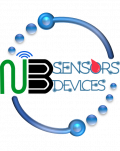Motivation
Over the years, there are increasing needs for the development of simple, cost-effective, portable, integrated biosensors that can be operated outside the laboratory by untrained personnel. However, to reach this goal a reliable sensor technology based on printed electronics has to be developed. Our group aims to develop and establish the field of Biosensor and Electrochemistry for Bench to Bedside diagnosis. Our goal will be the use of redox cycling-based wash-free electrochemical technique in a portable electronic device that can be operated outside the laboratory for simple and effective point-or-care testing in India for early stage disease diagnosis (i.e. cancer, malaria, dengue, tuberculosis, HIV/AIDS etc.). The main challenges of point-of-care testing require to implement complex analytical methods into low-cost technologies. This is particularly true for countries with less developed health care infrastructure. Our washing-free technique is very simple and innovative. We can develop a low-cost disposable wash-free chip and our approach will make it possible to perform highly sensitive detection of biomarkers with printed electronics. The redox cycling technology will detect several interesting targets at the same time on a printed chip. The proposed research projects are inherently cross-disciplinary, combining expertise in biosensing, electrochemistry, electronics & electrical engineering, healthcare and manufacturing, entailing close collaboration and knowledge exchange among the different labs.
